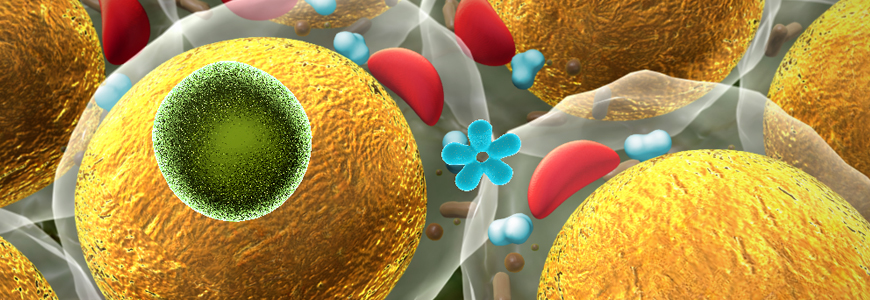New insights about metabolic and genetic markers that could help identify the risk of increased insulin resistance among women who are pregnant have been presented in a follow-up study from a large-scale maternal metabolome analysis.
Published in Diabetologia, the journal of the European Association for the Study of Diabetes, the research is based on the Hyperglycemia and Adverse Pregnancy Outcomes (HAPO) study, a large international investigation.
Duke molecular researcher James R. Bain, PhD, an author and member of the HAPO study group, says these results could help to enable early clinical interventions before metabolic disease or related comorbidities develop in women at risk. Collaborators included scientists in the Duke Molecular Physiology Institute and the HAPO group at Northwestern University.
“This is a very meaningful analysis of insulin resistance that goes well beyond simply measuring blood glucose,” Bain says. “This follow-up study presents detailed, hands-on findings based on a deep dive into genetic and metabolic analysis.”
Noting that few large studies have involved pregnant women because of concerns about the health of the child, Bain says HAPO data contribute to awareness about the long-term health of women who experience greater insulin resistance or full-blown diabetes while pregnant. Some of the metabolic changes identified in this study are being confirmed in pregnant women for the first time, Bain says.
“It’s significant that these findings go well beyond the study of glucose.” Bain says. “This work reveals broad disruptions in metabolic fuels, ranging from amino acids to diverse carbohydrates and lipids.”
This follow-up study was launched to determine if the actions of the maternal metabolome and genome in pregnancy-induced insulin resistance are similar to those seen in the non-gravid state.
To conduct the study, researchers collected serum samples from participants who were fasting and again one hour after the glucose load; participants were women in the HAPO study who underwent a glucose-tolerance test at approximately 28 weeks’ gestation. The study group obtained targeted and nontargeted metabolomic and genome-wide association data from 1,600 mothers (metabolomics) and 4,523 mothers (genetics) in four ethnic ancestry groups: Northern European, Afro-Caribbean, Mexican American, and Thai.
Key findings include:
- Numerous metabolites were associated with maternal insulin sensitivity, both before and one hour following a glucose load, ranging from amino acids and carbohydrates to fatty acids, other lipids, and lipid metabolites.
- Twelve genetic variants in glucokinase (hexokinase 4) regulator (GCKR) are associated with maternal insulin sensitivity.
- A common functional missense mutation in GCKR, known as rs1260326, was associated with maternal insulin sensitivity during pregnancy.
- One hour after glucose loading, a minor fatty acid, palmitoleic acid or C16:1, appears to contribute to the association of the rs1260326 mutation with maternal insulin sensitivity.
These findings might help in the development of assays to identify women at risk of gestational insulin resistance and diabetes, which could guide timely medical and lifestyle interventions.

